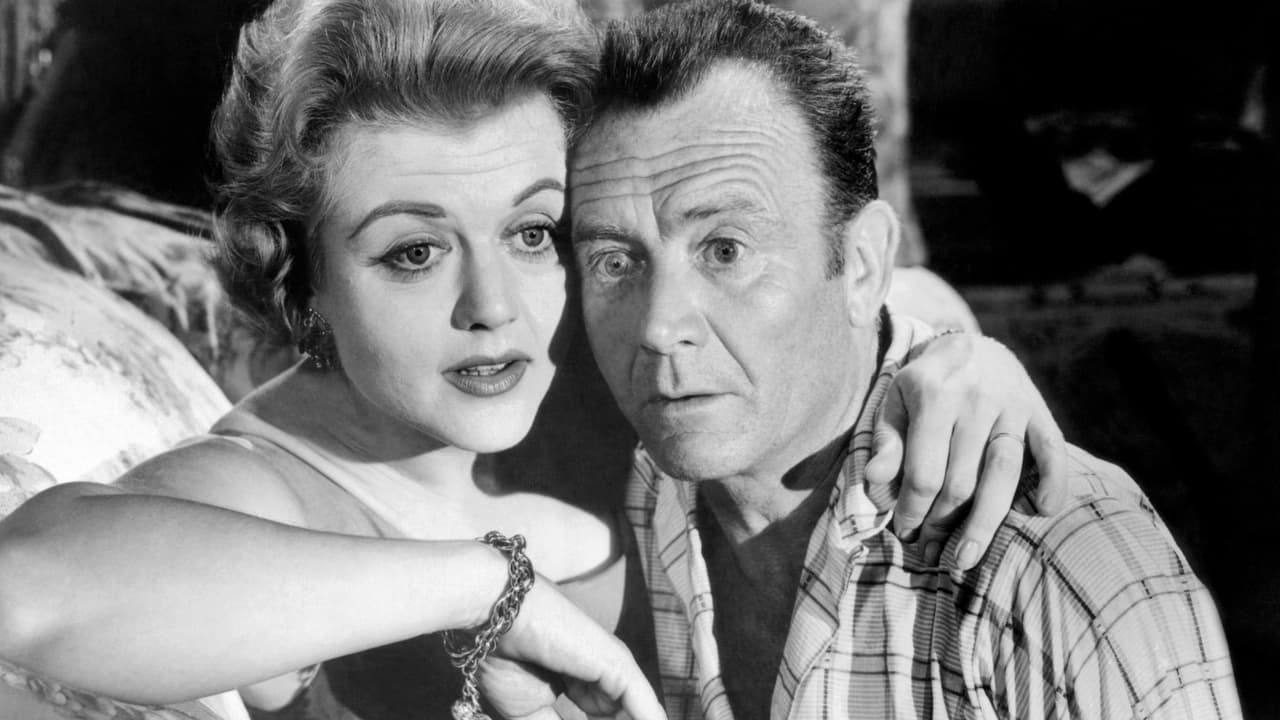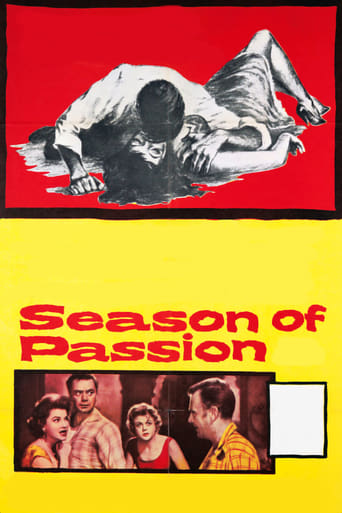

I read with some interest the comments by Aussie reviewers on this film before writing my own review. They seem to think the spirit of Ray Lawler's play was cut right of the film version of The Summer Of The 17th Doll. My own view just as it was the producer's choice to hire American and British leads it was also his choice to bow to American censor requirements and omnipresent Code still in force.I sympathize with the the Aussies who complain that one of their own should have been in the lead. Certainly Chips Rafferty who was the biggest name in Aussie cinema at the time could have taken Ernest Borgnine's part. He sure had the size for it.Summer Of The 17th Doll casts Borgnine and John Mills as a pair of sugar cane cutters who are now at liberty as the occupation is seasonal. Borgnine's size and strength make him respected while Mills reputation and identity come from his love 'em and leave 'em attitude with women. Both have their steady girls Anne Baxter and Angela Lansbury as anchors of a sort.But these two women are getting tired of being a pair of Adelaides for their Nathan Detroits. Plain and simple these two won't acknowledge they're not young any more. Plain and simple they won't grow up.And that's a universal situation not necessarily an Australian one. If Summer Of The 17th Doll were remade today I can see Nicole Kidman as one of the women and Guy Pearce as one of the men. And the Code restrictions would be off.Still while it's not all it could be, Summer Of the 17th Doll is a fine bit of film making.
... View MoreAt first glance it seems odd that a play set in a single room in the Melbourne suburb of Carlton in 1953 would have inspired Hollywood to turn it into a movie.At the heart of Ray Lawler's play is the story of people who have a unique relationship, but are aging and trying to recapture happier times. The play had a terrific sense of nostalgia, and the annual gift of the kewpie dolls were sad symbols of a time that was ending. Finally, the characters must come to terms with what they want from each other or what they can never receive. Although the setting is Australian the emotions are universal.There were many changes for the film. Some may have actually tightened the drama: the conflict between old friends Roo and Barney starts much earlier and the character of Dowd is given more to do. However the Luna Park sequence is heavy-handed and the ending is softer.Ernest Borgnine gave a passionate performance as Roo, but he struggled with the accent and he was never laid back enough. Australian Vincent Ball who played Dowd probably could have played the part, but he was hardly international box office.A year later, in "The Sundowners", an American star did play the type of Australian represented by Roo - Robert Mitchum. He got the accent about right, and he caught the tone; what might "Doll" have been with him in the role? Anne Baxter fared best. Although the accent slipped here and there, she created a warm and disarming Olive. The accent probably would have been pretty close four years later after she had lived that time on a property near Gloucester in NSW with her American husband. She was a brilliant woman on many levels who wrote of her experiences in "Intermission" - a fascinating outsider's view of life in rural Australia in the early 1960's.Accents aside, John Mills seemed a little too hyper anyway, but Angela Lansbury otherwise hit the right note as Pearl.The whole production has the feel of a British Ealing production, especially Benjamin Frankel's score, which is similar to his work for British films.The location was changed to Sydney opening the action out from the play. The exterior of Olive's house was in Glen Street, Milsons Point - the whole street is now high-rise apartments and office blocks although the view over Luna Park can still be recognised.I still find the film interesting, flaws and all. Both play and film are set in an Australia that is hardly recognisable now, but both capture feelings of loss and fear of change that are as relevant today as they were then.
... View MoreErnest Borgnine and John Mills star in this butchering of the Ray Lawlor play about cane cutters in the off - season. Borgnine, known at the time as the star in "McHale's Navy", is the middle aged labourer (actually about 33 years old or so in the play) past his prime and Mills is his mate. Angela Lansbury plays herself as a widow replacing Mills' girlfriend. In the play she was more salty than high class. In the play, "Barney" - played by Mills - was still a fairly young man (still in his mid-ish twenties). There is an odd scene where Bubba, the young ingenue is a barmaid filling up schooners with dregs (a Scottish bar ?). Product placements - Peters Icecream (twice), Brylcreem, Toohey Old (twice), TAA (airlines), Tooths (beer) and Bex (twice - aspirin).
... View MoreMany years ago I unwisely took part in an amateur production of Thornton Wilder's "The Matchmaker". I can still hear the mayhem created by those of us who tried, and failed miserably, to achieve an American accent and those (including, bizarrely, a stray Welshman) who just gave up and spoke their native idiom. Luckily out home-town audience was very forgiving and the local rag took pity on us.This dire experience came back to me when I saw "Summer of the Seventeenth Doll", but even so, not having seen the original stage play by Ray Lawler, I didn't realise how badly it had been butchered until I saw a TV performance by the Melbourne Theatre Company. The first reaction of an Australian audience will be to switch off because of the hilarious mangling of their native speech by an all-star cast who deserved better and would have been more gainfully employed on another project. Maybe that wouldn't matter to a foreign audience, but then again, perhaps the resultant strange mixture of assorted Cockney, Bronx and other sounds would have a subtly disturbing effect on any listener.Of more concern is the fact that the play's essence can't be divorced from its Australian roots, which include deceptively dry, laconic and understated speech cadences, without making it pretty meaningless. In fact it's the very antithesis of the overwrought, borderline- histrionic style of "serious" Hollywood films of the era. Anyone less like a laconic Queensland canecutter than the furiously emoting Ernest Borgnine would be hard to imagine. And switching the location from Melbourne to more photogenic Sydney settings, while trivial in itself, is symptomatic of the filmmakers' imperfect understanding of their vehicle.I don't know that "Doll" is a great play, but it is a good one. However, given the need for some audience-pulling names there was no real prospect of doing it properly in 1959. The accent problem, which is just part of the underlying cultural mismatch, is not to be dismissed, and I've never heard an American or British actor come close to a convincing Australian accent - even Meryl Streep. Even nowadays, with many high-visibility Australians in Hollywood, it would be a problematic vehicle because at bottom it's pretty stagy. It's just one of those movies that shouldn't have been made.
... View More